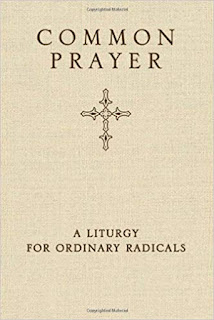 |
| Psalm 146; Isaiah 59:9-19; Acts 9:1-20 |
The Daily Lectionary
MONDAY, March 23, 2020
(Revised Common Lectionary Year A)
God opens the eyes of the blind
1 Praise the Lord.
Praise the Lord, my soul.
2 I will praise the Lord all my life;
I will sing praise to my God as long as I live.
3 Do not put your trust in princes,
in human beings, who cannot save.
4 When their spirit departs, they return to the ground;
on that very day their plans come to nothing.
5 Blessed are those whose help is the God of Jacob,
whose hope is in the Lord their God.
6 He is the Maker of heaven and earth,
the sea, and everything in them—
he remains faithful forever.
7 He upholds the cause of the oppressed
and gives food to the hungry.
The Lord sets prisoners free,
8 the Lord gives sight to the blind,
the Lord lifts up those who are bowed down,
the Lord loves the righteous.
9 The Lord watches over the foreigner
and sustains the fatherless and the widow,
but he frustrates the ways of the wicked.
10 The Lord reigns forever,
your God, O Zion, for all generations.
Praise the Lord.
The blindness of injustice
9 So justice is far from us,
and righteousness does not reach us.
We look for light, but all is darkness;
for brightness, but we walk in deep shadows.
10 Like the blind we grope along the wall,
feeling our way like people without eyes.
At midday we stumble as if it were twilight;
among the strong, we are like the dead.
11 We all growl like bears;
we moan mournfully like doves.
We look for justice, but find none;
for deliverance, but it is far away.
12 For our offenses are many in your sight,
and our sins testify against us.
Our offenses are ever with us,
and we acknowledge our iniquities:
13 rebellion and treachery against the Lord,
turning our backs on our God,
inciting revolt and oppression,
uttering lies our hearts have conceived.
14 So justice is driven back,
and righteousness stands at a distance;
truth has stumbled in the streets,
honesty cannot enter.
15 Truth is nowhere to be found,
and whoever shuns evil becomes a prey.
The Lord looked and was displeased
that there was no justice.
16 He saw that there was no one,
he was appalled that there was no one to intervene;
so his own arm achieved salvation for him,
and his own righteousness sustained him.
17 He put on righteousness as his breastplate,
and the helmet of salvation on his head;
he put on the garments of vengeance
and wrapped himself in zeal as in a cloak.
18 According to what they have done,
so will he repay
wrath to his enemies
and retribution to his foes;
he will repay the islands their due.
19 From the west, people will fear the name of the Lord,
and from the rising of the sun, they will revere his glory.
For he will come like a pent-up flood
that the breath of the Lord drives along.
Saul is baptized his sight restored
9:1 Meanwhile, Saul was still breathing out murderous threats against the Lord’s disciples. He went to the high priest 2 and asked him for letters to the synagogues in Damascus, so that if he found any there who belonged to the Way, whether men or women, he might take them as prisoners to Jerusalem. 3 As he neared Damascus on his journey, suddenly a light from heaven flashed around him. 4 He fell to the ground and heard a voice say to him, “Saul, Saul, why do you persecute me?”
5 “Who are you, Lord?” Saul asked.
“I am Jesus, whom you are persecuting,” he replied. 6 “Now get up and go into the city, and you will be told what you must do.”
7 The men traveling with Saul stood there speechless; they heard the sound but did not see anyone. 8 Saul got up from the ground, but when he opened his eyes he could see nothing. So they led him by the hand into Damascus. 9 For three days he was blind, and did not eat or drink anything.
10 In Damascus there was a disciple named Ananias. The Lord called to him in a vision, “Ananias!”
“Yes, Lord,” he answered.
11 The Lord told him, “Go to the house of Judas on Straight Street and ask for a man from Tarsus named Saul, for he is praying. 12 In a vision he has seen a man named Ananias come and place his hands on him to restore his sight.”
13 “Lord,” Ananias answered, “I have heard many reports about this man and all the harm he has done to your holy people in Jerusalem. 14 And he has come here with authority from the chief priests to arrest all who call on your name.”
15 But the Lord said to Ananias, “Go! This man is my chosen instrument to proclaim my name to the Gentiles and their kings and to the people of Israel. 16 I will show him how much he must suffer for my name.”
17 Then Ananias went to the house and entered it. Placing his hands on Saul, he said, “Brother Saul, the Lord—Jesus, who appeared to you on the road as you were coming here—has sent me so that you may see again and be filled with the Holy Spirit.” 18 Immediately, something like scales fell from Saul’s eyes, and he could see again. He got up and was baptized, 19 and after taking some food, he regained his strength.
Saul spent several days with the disciples in Damascus. 20 At once he began to preach in the synagogues that Jesus is the Son of God.
Optional parts of the readings are set off in [square brackets.]
The Bible texts of the Old Testament, Epistle, and Gospel lessons are from The Holy Bible, New International Version®, NIV® Copyright ©1973, 1978, 1984, 2011 by Biblica, Inc.® Used by permission. All rights reserved worldwide.
The Daily Lectionary is a three-year cyclical lectionary. We are currently in Year A. Beginning with the first Sunday of Advent in 2020, we will be in Year B. The year which ended at Advent 2019 was Year C. These readings complement the Sunday and festival readings: Thursday through Saturday readings help prepare the reader for the Sunday ahead; Monday through Wednesday readings help the reader reflect and digest what they heard in worship. Revised Common Lectionary Daily Readings, copyright © 2005 Consultation on Common Texts. www.commontexts.org
The Daily Lectionary for MONDAY, March 23, 2020
Psalm 146; Isaiah 59:9-19; Acts 9:1-20









